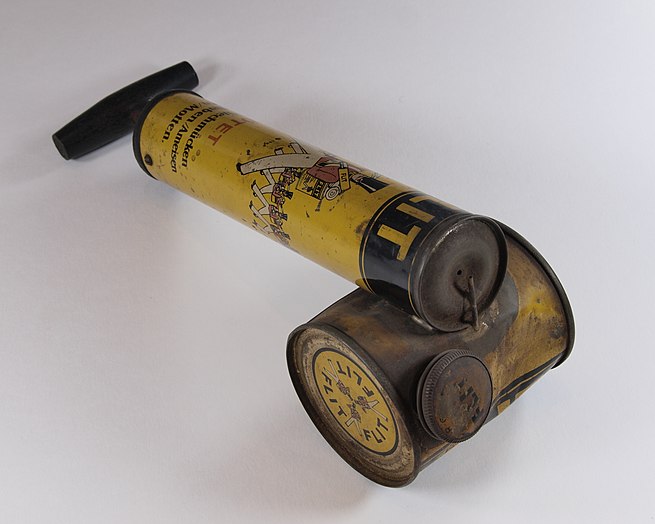Main Difference
The main difference between Insecticide and Pesticide is that the Insecticide is a pesticide used against insects and Pesticide is a substance used to destroy pests.
-
Insecticide
Insecticides are substances used to kill insects. They include ovicides and larvicides used against insect eggs and larvae, respectively. Insecticides are used in agriculture, medicine, industry and by consumers. Insecticides are claimed to be a major factor behind the increase in the 20th-century’s agricultural productivity. Nearly all insecticides have the potential to significantly alter ecosystems; many are toxic to humans and/or animals; some become concentrated as they spread along the food chain.
Insecticides can be classified into two major groups: systemic insecticides, which have residual or long term activity; and contact insecticides, which have no residual activity.
Furthermore, one can distinguish three types of insecticide. 1. Natural insecticides, such as nicotine, pyrethrum and neem extracts, made by plants as defenses against insects. 2. Inorganic insecticides, which are metals. 3. Organic insecticides, which are organic chemical compounds, mostly working by contact.
The mode of action describes how the pesticide kills or inactivates a pest. It provides another way of classifying insecticides. Mode of action is important in understanding whether an insecticide will be toxic to unrelated species, such as fish, birds and mammals.
Insecticides may be repellent or non-repellent. Social insects such as ants cannot detect non-repellents and readily crawl through them. As they return to the nest they take insecticide with them and transfer it to their nestmates. Over time, this eliminates all of the ants including the queen. This is slower than some other methods, but usually completely eradicates the ant colony.Insecticides are distinct from non-insecticidal repellents, which repel but do not kill.
-
Pesticide
Pesticides are substances that are meant to control pests, including weeds. The term pesticide includes all of the following: herbicide, insecticides (which may include insect growth regulators, termiticides, etc.) nematicide, molluscicide, piscicide, avicide, rodenticide, bactericide, insect repellent, animal repellent, antimicrobial, and fungicide. The most common of these are herbicides which account for approximately 80% of all pesticide use. Most pesticides are intended to serve as plant protection products (also known as crop protection products), which in general, protect plants from weeds, fungi, or insects.
In general, a pesticide is a chemical or biological agent (such as a virus, bacterium, or fungus) that deters, incapacitates, kills, or otherwise discourages pests. Target pests can include insects, plant pathogens, weeds, molluscs, birds, mammals, fish, nematodes (roundworms), and microbes that destroy property, cause nuisance, or spread disease, or are disease vectors. Along with these benefits, pesticides also have drawbacks, such as potential toxicity to humans and other species.
-
Insecticide (noun)
A substance used to kill insects.
-
Pesticide (noun)
Anything, especially a synthetic substance but also any substance (e.g. sulfur), or virus, bacterium, or other organism, which kills or suppresses the activities of pests.

